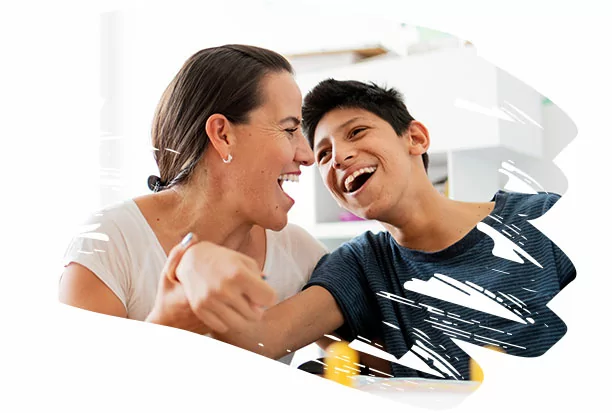The journey to making positive life changes starts by crafting a personalised Behaviour Support Plan with you and your trusted team. This plan becomes a go-to guide filled with solutions to tackle challenging behaviours and keep everyone safe. It ensures we’re all on the same page, focusing on skill-building.
Firstly, we’ll develop an Interim Behaviour Support Plan if there are restrictive practices being used, and you’ll receive this within 30 days of your assessment to share, review, and update regularly with your team. The interim plan clearly sets the preventative, or environmental changes needed, and ensures consistency and predictability of support.
Then, within six months of seeing you, we’ll create a Comprehensive Behaviour Support Plan. This plan benefits from the extra time we’ve spent with you, additional assessments, and tested strategies. We’ll dig into what the behaviours mean, what you’re trying to express, what’s working well, and what needs more focus.
Where a plan includes a restrictive practice, we’ll send it to the relevant states and territories’ Office of the Senior Practitioner for authorisation and the NDIS Commission for monitoring the use of restrictive practices.
Our goal is to make sure everyone knows the plan and how to use it in their daily lives.





